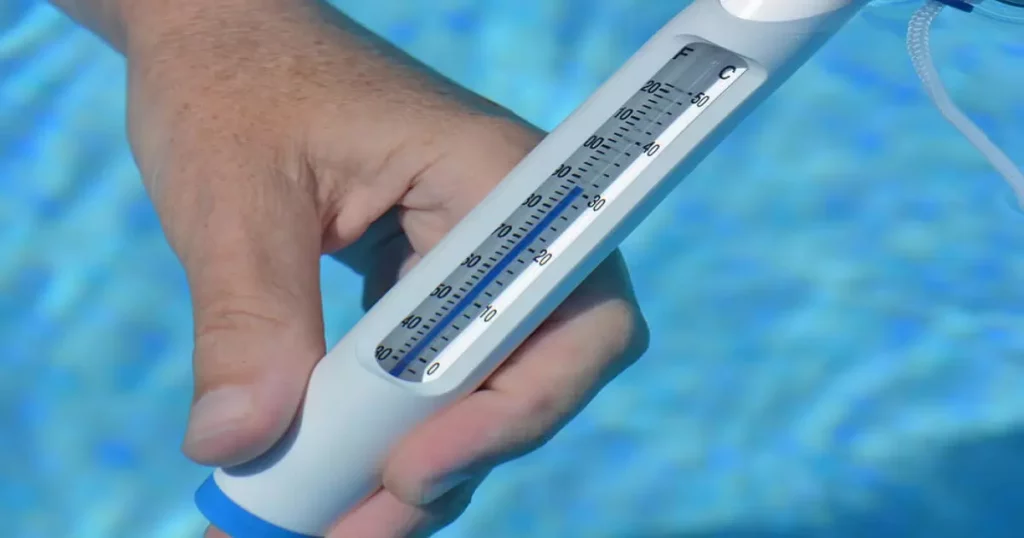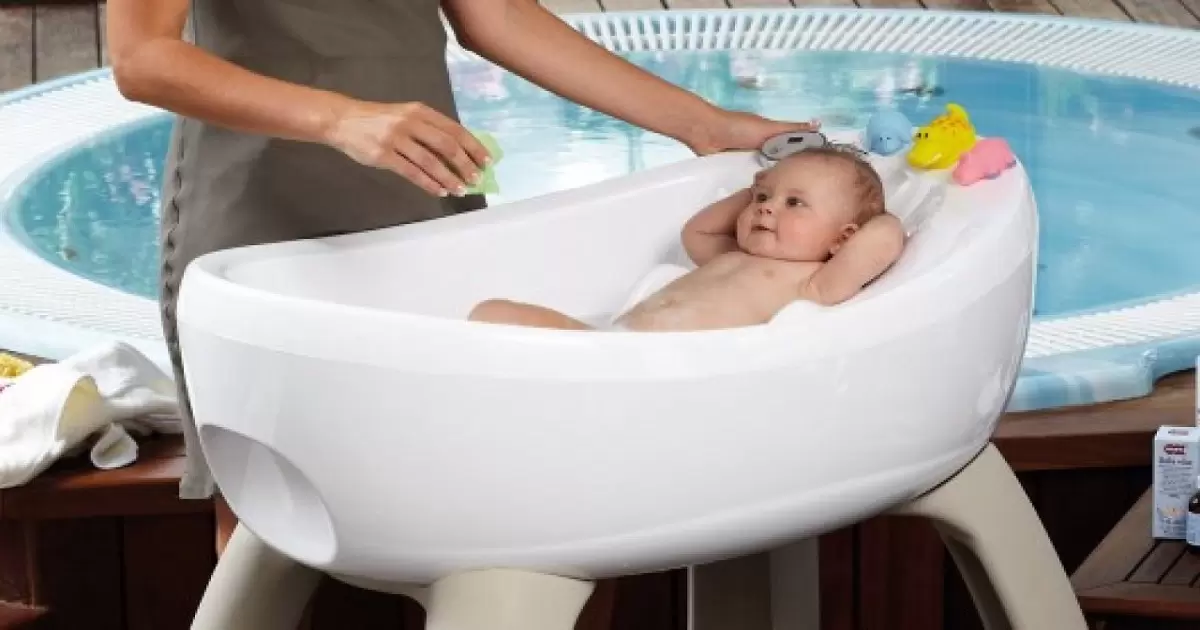A Jacuzzi is a type of hot tub or spa that uses heated water and jets to provide relaxation and hydrotherapy. But can babies go in Jacuzzis? It’s essential to address this question with utmost caution and care, as the safety of infants in such environments is a paramount concern.
Imagine the soothing warmth of a Jacuzzi, but for a baby, the experience can be quite different. In the second paragraph, we’ll explore the potential risks and considerations associated with bringing a baby into a Jacuzzi, shedding light on the precautions parents must take to ensure their child’s safety in such settings.
When it comes to babies and Jacuzzis, it’s crucial to prioritize safety above all else. The third paragraph will provide valuable insights into the potential dangers of exposing infants to hot tubs and offer recommendations on when and how, under specific circumstances, babies can safely enjoy this water-based relaxation experience.
Understanding Jacuzzis and Their Use
Jacuzzis, often known as hot tubs, are popular for relaxation and therapy. They are designed for adults, featuring warm, bubbling water. Their primary use is for leisure, often seen in spas, gyms, and homes. The warm temperature and water jets create a soothing environment. However, the design and function of jacuzzis cater to adult needs and tolerances.
While jacuzzis offer therapeutic benefits for adults, they are not made with babies in mind. The high temperatures and powerful jets can be harmful to infants. Adults enjoy the heat and pressure, but these features can be overwhelming for a baby. It’s crucial to consider the physical differences between adults and infants when considering jacuzzi use.
Age-Related Considerations for Jacuzzi Use
When it comes to jacuzzis, age is a crucial factor. For babies and toddlers, the risks associated with jacuzzi use are significant. Their bodies cannot regulate temperature as effectively as adults. This makes them more susceptible to overheating or hypothermia in extreme temperatures.
For older children, the risks diminish, but caution is still advised. It’s recommended that children under the age of five avoid hot tubs. Their skin is more sensitive, and they are more prone to heat-related issues. Parents should always consult with a pediatrician before allowing older children to use a jacuzzi.
Health Risks for Babies in Jacuzzis
| Risk Factor | Description | Precaution |
| Overheating | Babies can overheat quickly in hot water | Monitor temperature closely |
| Dehydration | Hot water can lead to rapid dehydration | Ensure hydration |
| Infection | Warm water can harbor bacteria | Check cleanliness |
| Chemical Exposure | Chlorine and other chemicals can be harmful | Be aware of chemical levels |
| Drowning Risk | Babies can easily drown in deep water | Never leave unattended |
Babies face multiple health risks in jacuzzis. Overheating is a primary concern. Their small bodies heat up much faster than adults, making it dangerous in hot water. This can lead to overheating, causing dizziness, dehydration, and in severe cases, heat stroke.
Another significant risk is waterborne infections. Jacuzzis often contain various chemicals and bacteria that can harm a baby’s sensitive skin and immune system. Babies are more susceptible to these risks than adults, as their skin and immune systems are still developing. It’s essential to understand these risks before considering a jacuzzi for a baby.
Managing Water Temperature for Baby Safety

For baby safety, water temperature is crucial. The ideal bath temperature for babies is around 100°F (38°C). In contrast, jacuzzis often maintain temperatures around 104°F (40°C). This difference can be critical for a baby’s health. Even a slight increase in temperature can pose a risk to infants.
When considering any water activity with a baby, always check the temperature first. Use a reliable thermometer to ensure the water is safe. Never rely on hand-testing, as adult skin perceives temperature differently than a baby’s. This step is vital for preventing overheating and ensuring the baby’s comfort and safety.
Hygiene and Chemical Exposure in Jacuzzis
Hygiene in jacuzzis is a significant concern, especially for babies. The warm, moist environment is a breeding ground for bacteria and germs. These can be harmful to a baby’s health, causing skin irritations or infections. Regular cleaning and maintenance of the jacuzzi are essential to minimize these risks.
Chemical exposure is another concern. Jacuzzis often contain chlorine and other chemicals to keep the water clean. While these chemicals are safe for adults, they can be too harsh for a baby’s delicate skin and respiratory system. Parents should be aware of these factors before considering a jacuzzi for their baby.
The Importance of Supervision and Safety Measures
Supervision is crucial when babies are near water. In a jacuzzi, even a moment’s distraction can be dangerous. Babies can slip underwater quickly and silently. Therefore, constant adult supervision is mandatory. Never leave a baby unattended in or near a jacuzzi, even for a moment.
Safety measures extend beyond supervision. This includes ensuring the jacuzzi is in good condition, with secure barriers to prevent accidental access. Also, keeping emergency equipment like life rings or floatation devices nearby is a wise precaution. These measures are essential for preventing accidents.
Safer Alternatives to Jacuzzis for Babies
Instead of a jacuzzi, consider safer alternatives for babies. Baby pools are a great option. They allow for water play without the risks associated with hot tubs. These pools can be filled with comfortably warm water, suitable for a baby’s delicate skin and temperature regulation.
Another alternative is a gentle bath in a regular bathtub. This can be made fun with safe bath toys and mild water temperatures. It’s a safer environment for babies to enjoy water play. Parents can control the temperature and ensure a clean, chemical-free experience.
Concluding Thoughts on Baby Safety and Jacuzzis
In conclusion, while jacuzzis offer relaxation and therapeutic benefits for adults, they are not suitable for babies. The risks, including overheating, dehydration, and chemical exposure, are too high. Babies have unique needs and vulnerabilities that make jacuzzis inappropriate for them.
The safety and wellbeing of babies should always be a priority. Opting for safer alternatives like baby pools or regular bathtubs is advisable. Remember, when it comes to babies and water, supervision and precaution are key. Always consult with a pediatrician for guidance on water activities for your baby.
FAQs
Can babies go in a Jacuzzi?
Yes, babies can go in a Jacuzzi, but it requires careful consideration and specific safety precautions to protect their well-being.
At what age is it safe to take a baby in a Jacuzzi?
It is generally recommended to wait until a baby is at least six months old before introducing them to a Jacuzzi, as their developing bodies are more sensitive to temperature changes.
What safety measures should be taken when bringing a baby into a Jacuzzi?
Ensure the Jacuzzi water temperature is not too hot (typically below 100°F or 37°C), and limit the time spent in the water to a few minutes to prevent overheating. Always hold the baby securely and keep their head above the water.
Are there any medical conditions or considerations that affect a baby’s ability to be in a Jacuzzi?
Yes, babies with certain medical conditions or premature infants may have increased risks associated with Jacuzzi use. It’s essential to consult with a healthcare professional before introducing them to hot tubs.
can babies use Jacuzzis in public facilities?
Most public Jacuzzis and hot tubs have age restrictions for safety reasons. Check the rules and regulations of the specific facility you plan to visit and consider the health and safety of your baby before using a public Jacuzzi.
Conclusion
In considering whether babies can go in a Jacuzzi, it’s evident that safety is paramount. While it’s possible for babies to enjoy the soothing waters of a Jacuzzi, it must be approached with utmost caution. Parents and caregivers should wait until the baby is at least six months old, keep the water at a safe temperature, and limit the time spent in the Jacuzzi. Additionally, consulting with a healthcare professional, especially for babies with medical conditions or premature infants, is vital to ensure their well-being.
Ultimately, the decision to take a baby into a Jacuzzi should prioritize the baby’s health and safety above all else. By adhering to the recommended guidelines and being vigilant, parents can create a positive and safe experience for their little ones in the world of Jacuzzis.








